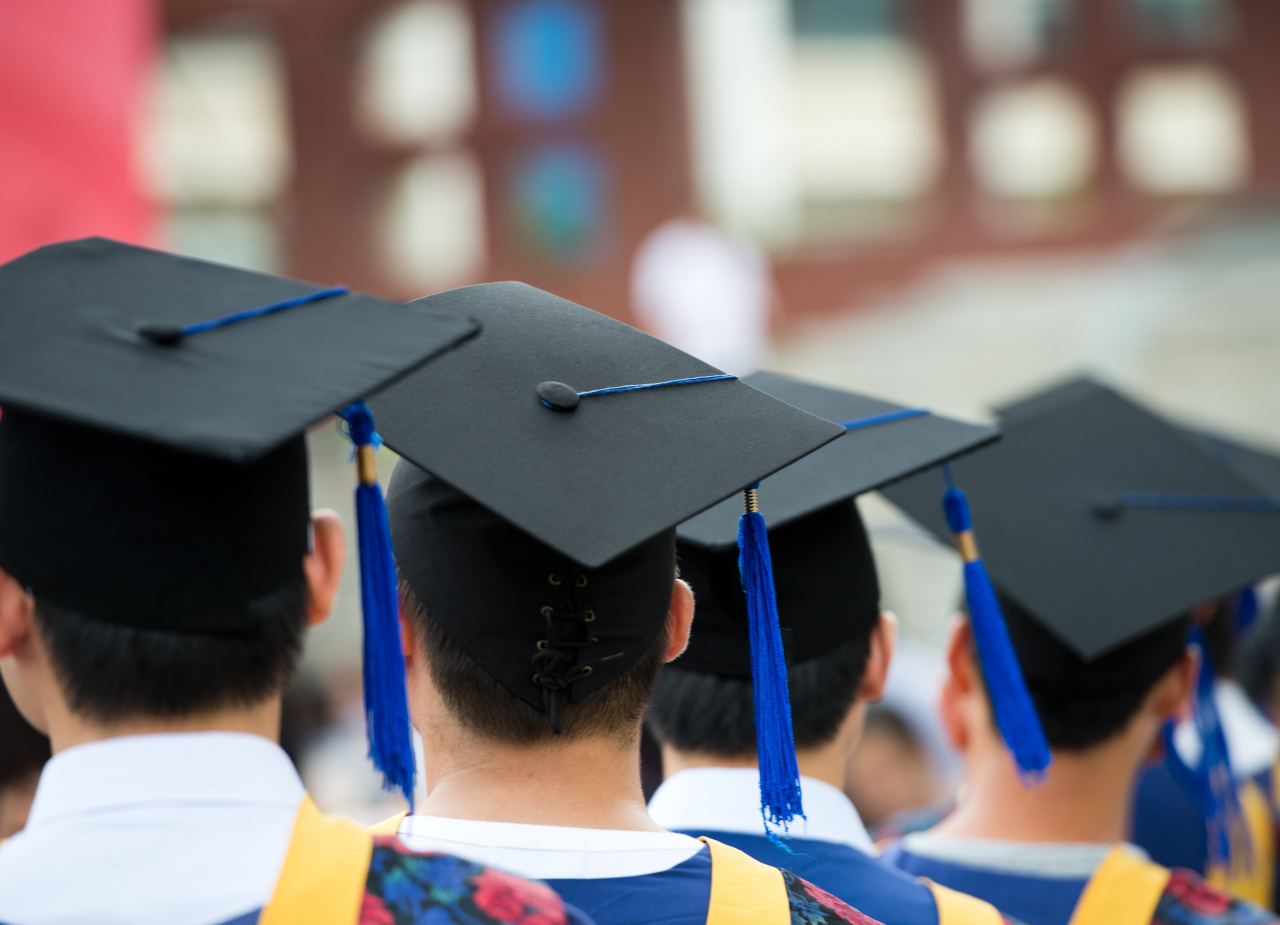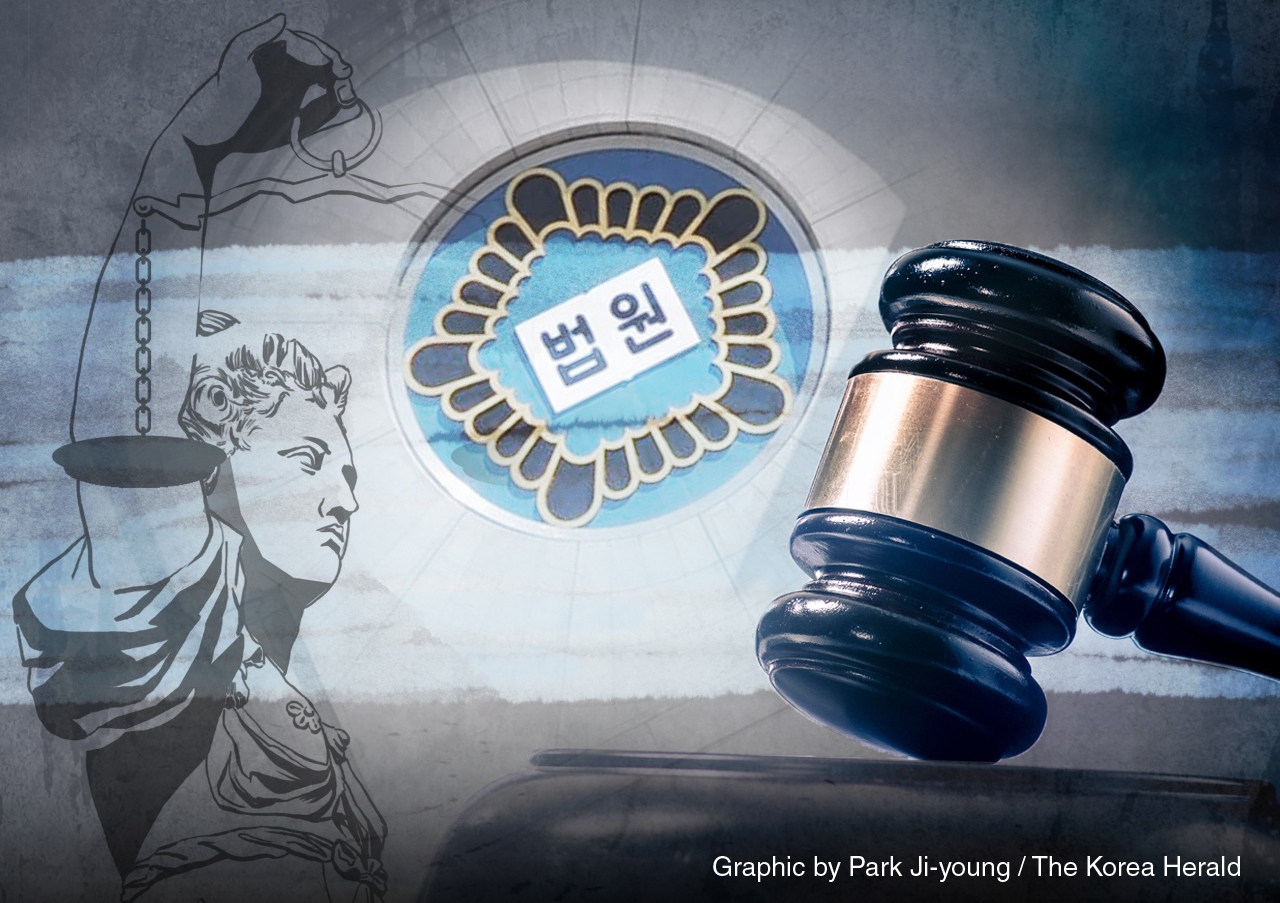Do professors in Korea have too much power over students?
Graduate students in particular remain vulnerable to campus 'gapjil' by overbearing professors
By Yoon Min-sikPublished : Sept. 26, 2023 - 17:03

Earlier this month, a former professor saw his appeal denied in a lawsuit he filed to overturn the university’s decision to dismiss him. He was fired for sending inappropriate messages to a graduate student -- a female foreign national doing a doctorate.
In 2021, the male professor sent sexually suggestive messages to the Ph.D. student, while implying that he would not pass her dissertation if she continued to avoid his advances. In some of the messages disclosed to the media, he described himself as an “emperor” and the victim a “concubine.”
The case appears to be a classic instance of "gapjil," which refers to a superior's abuse of power over an individual in a subordinate role, often by harassment or exploitation.
Although it typically occurs in the workplace, gapjil is also common in universities between professors and students.
Graduate students vulnerable
The #MeToo movement in the mid to late 2010s was a wake-up call against the prevalent practice of those in positions of authority to abuse their power to exploit those they outrank, and Korean universities, often referred to as an "ivory tower," were no exception.
Many universities now operate human rights centers on campus, installed at the nudging of the National Human Rights Commission of Korea's 2016 recommendation and amid public pressure in the years following.
Regular faculty evaluations by students have also played a role in amplifying student voices -- particularly those of undergraduates -- within the higher education system.
A professor at a small university, who spoke on anonymity for fear of reprisal, complained how the school always tells him to “let students have their way.”
“Rather than focus on the quality of education, (professors) have to be mindful of what the students want, just to be a 'good person.' I think it has deleterious effects on students' attitudes,” he said.
An undergraduate student at a Seoul-based university said students do not exactly fear the professors.
“We have an old professor in our university who tiptoes around students. I don't think professors can always have their way because they have to worry about teacher evaluations,” said the student, who preferred not to be named.
But the reality experienced by graduate students may differ significantly.
Last year, Korea Advanced Institute of Science and Technology, one of the country's top tech colleges, was embroiled in controversy when a professor was found to have slapped several graduate students multiple times.
A survey by KAIST’s student council of 1,185 graduate students revealed that 72 were subject to verbal abuse, while 44 had been sexually harassed by a professor. Almost 15 percent, or 166 of them, said they had been coerced to run personal errands for their professors.
Unlike undergraduates, who are free to drop classes if they do not like the teachers, graduate students foster and maintain closer relationships with their professors, which can, at times, inadvertently enable persistent issues to go unchecked.
Faculty advisors head graduate students' dissertation committees -- which conventionally consist of three committee members for a master's and five for a doctoral student -- giving these professors massive influence over the student's studies and future career.
Students theoretically can switch faculty advisers any time they want -- with consent from their current adviser. But this process is easier said than done, as grad students are in a pseudo-apprenticeship with their faculty advisor.
A doctoral student at a Seoul-based university explained that it is difficult for graduate students to speak out against their professors for fear that one could face serious disadvantages in the field.
“In many cases, academia in Korea is comprised of a very narrow network of people, where most members are acquainted on some level with each other. Unless you are willing to change your field itself, it is very difficult to challenge your advisor,” said the 32-year-old student, surnamed Choi.
While not having been subject to extreme gapjil himself -- despite still being expected to do extra tasks for his professor here and there -- Choi noted that he has heard of several cases where a faculty advisor abused his position. “There was a professor who threatened to remove a student’s name from the list of authors for a research paper unless she did the extra work, or downgrade her contribution from the lead author to a co-author.”
Earlier this year, a local media outlet reported the case of a 31-year-old graduate student surnamed Park who was flooded with personal errand requests from his adviser. When Park protested, he was excluded from research projects and was unable to graduate.
Surveys indicate that graduate students are still under the influence of their professors as figures of authority.
An anonymous survey by the Korean Graduate Employee Union of 197 graduate students across the country in 2018 showed that 74 percent thought gapjil exists in universities.
According to a survey of 1,902 graduate students conducted by the Korean Institute of Criminology and Justice and published in 2020, nearly half -- 46.4 percent -- said they had been subjected to gapjil at least once at school.
On why such human rights violations occur on campus, 27.1 percent said that it was due to the authority of either the professor or the university, followed by 24.8 percent of the respondents blaming the culture of the professor-student relationship influencing the rest of grad students’ careers.
Anti-gapjil system weak
When the alleged abuse of students by professors emerges, the on-campus human rights center is supposed to intervene. But many students and members of the faculty call these centers nothing but "toothless tigers."
“There was a graduate student who was doing a one-person protest over abuse from her professor, which was picked up by local media. So the university set up a human rights center, as demanded by the student council,” said a faculty member of a university on the condition of anonymity.

“The funny thing was that the university didn't hire additional employees for this center. The work was allocated to the school's administrative team. Really, it was just a name that was posted on the website and some regulations that were introduced along with it.”
The researchers at the Korean Institute of Criminology and Justice stressed in their study the need for personnel dedicated to deal with rights violation issues at universities.
Citing data from the Korean Association of Gender Equality on Campus, they said 45.8 percent of universities have just one person dealing with such issues, while 30.5 percent of the universities have only two people. Of these cases, 69.5 percent were also carrying out regular administrative duties on top of handling sexual violence issues.
Some universities, including Yonsei University, operate counseling centers and gender equality centers separate from their human rights centers. This, the study noted, was assessed positively as employees could handle specific issues more effectively.
“Many of the human rights centers at universities lack the regulations, independence, proximity to students, effectiveness and responsibility that such organizations require. Improvements in the size, funding and status of its members are necessary to ensure that its functions are carried out properly,” Korea's human rights commission said in a recent report.












![[Kim So-hyun] The quiet taxi driver from Paris](http://res.heraldm.com/phpwas/restmb_idxmake.php?idx=644&simg=/content/image/2024/04/25/20240425050891_0.jpg&u=)







